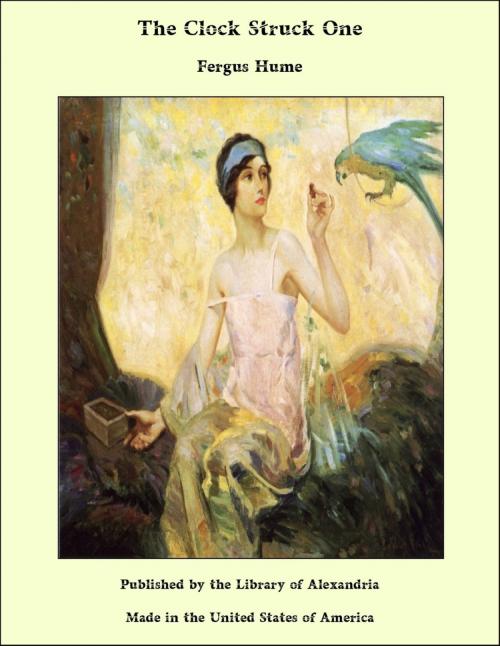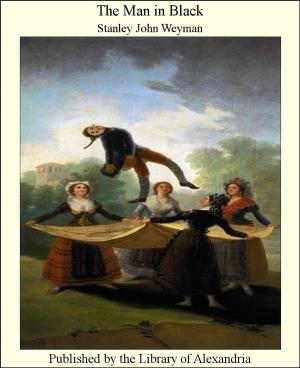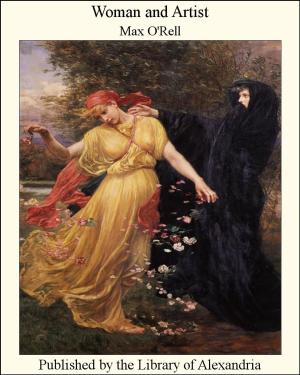| Author: | Fergus Hume | ISBN: | 9781465617972 |
| Publisher: | Library of Alexandria | Publication: | March 8, 2015 |
| Imprint: | Language: | English |
| Author: | Fergus Hume |
| ISBN: | 9781465617972 |
| Publisher: | Library of Alexandria |
| Publication: | March 8, 2015 |
| Imprint: | |
| Language: | English |
Over the bridge which spans the railway two miles from Canterbury a girl was riding a bicycle. She was perfect mistress of her machine--and nerves; for on the slope of the hill she let the wheels run freely, and did not trouble to use the brake. The white dust clouded the air as she spun down to the level; and the heat of the day--a July noon--was so great that she was fain to dismount for the sake of coolness. A wayside fence offered a tempting seat; and, with a questioning glance to right and left, the girl balanced herself lightly on the topmost rail. Here she perched in a meditative fashion, and fanned her flushed face with her straw hat. A pretty girl in so unconventional a position, unchaperoned and fearless, would have shocked the susceptibilities of our grandmothers. But this is the age of the New Woman, and the girl was a type of her epoch. Assuredly a finer representative could not have been found. She was tall and straight, deep-bosomed and stately. Her sunburnt complexion, her serviceable tailor-made dress and her stout shoes of brown leather, denoted a preference for life out of doors. Across her broad forehead, round her well-shaped head, fluttered tiny curls in a loose mass of burnished gold. For the rest, a nose aquiline and two steady eyes of gray, a mouth rather wide, red-lipped and firm; there you have a portrait in your mind's eye of a charming gentlewoman--new style. Diana must have been just such another; but for brightness, sympathy, and womanly kindness the maid surpassed the goddess. If mythology is to be credited, Diana was cold, serene and--vide Actæon's disaster--a trifle cruel. On the whole, this mortal was more lovable than that immortal, and less dangerous; otherwise the comparison holds good. Miss Dora Carew was a modern Diana--on a bicycle. Shortly, Diana of Kent reassumed her hat, and, folding her arms, stared absently across the fields. She saw not sheep or meadow, hedge or ditch, windmill or rustling tree, for her mind was absorbed in her own thoughts; and these--as indexed by her changing expressions--did not seem to be over-pleasant. Dora frowned, smiled, wrinkled her forehead into two perpendicular lines between the eyebrows, and finally made a gesture of impatience; this last drawn forth by a glance at her watch.
Over the bridge which spans the railway two miles from Canterbury a girl was riding a bicycle. She was perfect mistress of her machine--and nerves; for on the slope of the hill she let the wheels run freely, and did not trouble to use the brake. The white dust clouded the air as she spun down to the level; and the heat of the day--a July noon--was so great that she was fain to dismount for the sake of coolness. A wayside fence offered a tempting seat; and, with a questioning glance to right and left, the girl balanced herself lightly on the topmost rail. Here she perched in a meditative fashion, and fanned her flushed face with her straw hat. A pretty girl in so unconventional a position, unchaperoned and fearless, would have shocked the susceptibilities of our grandmothers. But this is the age of the New Woman, and the girl was a type of her epoch. Assuredly a finer representative could not have been found. She was tall and straight, deep-bosomed and stately. Her sunburnt complexion, her serviceable tailor-made dress and her stout shoes of brown leather, denoted a preference for life out of doors. Across her broad forehead, round her well-shaped head, fluttered tiny curls in a loose mass of burnished gold. For the rest, a nose aquiline and two steady eyes of gray, a mouth rather wide, red-lipped and firm; there you have a portrait in your mind's eye of a charming gentlewoman--new style. Diana must have been just such another; but for brightness, sympathy, and womanly kindness the maid surpassed the goddess. If mythology is to be credited, Diana was cold, serene and--vide Actæon's disaster--a trifle cruel. On the whole, this mortal was more lovable than that immortal, and less dangerous; otherwise the comparison holds good. Miss Dora Carew was a modern Diana--on a bicycle. Shortly, Diana of Kent reassumed her hat, and, folding her arms, stared absently across the fields. She saw not sheep or meadow, hedge or ditch, windmill or rustling tree, for her mind was absorbed in her own thoughts; and these--as indexed by her changing expressions--did not seem to be over-pleasant. Dora frowned, smiled, wrinkled her forehead into two perpendicular lines between the eyebrows, and finally made a gesture of impatience; this last drawn forth by a glance at her watch.















